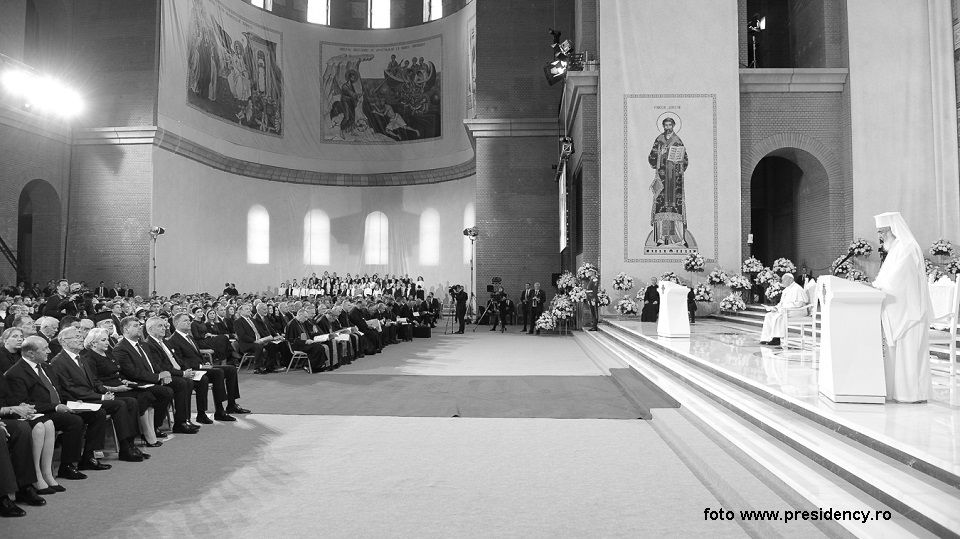October 30, UPDATE
For a roundup of domestic and international news, click here.

România Internațional, 30.10.2014, 12:15
DRILL — More than 4,000 members of armed forces from 18 countries, among which Romania and the Republic of Moldova are taking part in a military drill in the region of Hohenfens in Germany. The military are on patrol, escort, guarding, planning and medical evacuation missions. The eventual aim of the drill, to be held until November 12, is to improve the interoperability of partner states’ ground forces, as part of tactical operations conducted in a multinational environment. Taking part in the drill are military from Albania, Bulgaria, Denmark, Armenia, Canada, Hungary, Republic of Moldova, Germany, Norway, Romania, the United States, Slovakia, Slovenia, Montenegro, The Netherlands, the Czech Republic, Spain and Serbia.
NEGOTIATIONS — Negotiations are underway in Ukraine between the incumbent President Petro Poroshenko’s Bloc and Prime Minister Arsenyi Yatsekyuk’s People’s Front, focusing on the structure of the future pro-Western ruling coalition. Winners with more than 20 percent of the ballots in this past Sunday’s parliamentary elections, the two political groups could also have other parties join them in the governing coalition, namely those parties favouring the breakaway from Russia and gaining accession to the European Union. In its attempt to give a fresh impetus to Ukraine’s allegedly pro-Western political groups, the European Union has recently announced it was ready to give its go-ahead for two fresh payments standing at 760 million euros, by the end of the year. In another development, Russia, having nonetheless recognized the elections in Ukraine, announced it also backed and recognized the legislative and presidential elections due this coming weekend in the eastern separatist regions of Donetsk and Luhansk.
INVESTMENT — The European Union has decided to invest 650 million Euro in more than 30 energy infrastructure projects, mostly in Baltic and Central European states. According to the European Commission, the projects are set to provide greater energy security for the entire Europe, also curbing the isolation of several EU member states from the European Union’s energy network and at once contributing to the completion of Europe’s energy market. The largest part of the funding, accounting for almost 300 million euros, is earmarked for a gas interconnectivity project, linking Poland to Lithuania. The financial aid for an electrical interconnection network between Estonia and Latvia stands at more than 100 million euros.
SEARCH OPERATIONS — National Anti-Corruption Directorate prosecutors on Thursday initiated search operations targeting offices at the National Audio Visual Council headquarters, the body regulating Romania’s media market. The prosecutors have seized documents signed by the Institution’s CEO Laura Georgescu, who has been facing charges of having instigated its employees to file bogus complaints, so that as many TV stations as possible can be imposed a fine on by the National Audio Visual Council. The prosecutors’ search operations targeting the National Audio Visual Council have occurred as this week they also made a couple of arrests in some of Romania’s top-level corruption files.
ELECTIONS — The European Commission Representative Office in Romania has expressed hope that there will be a high voter turnout in Sunday’s elections. 14 candidates have enrolled in the race for Cotroceni. A total of 18,550 polling stations will be available in the country and 294 abroad. 21 voting ballots will be printed and 94,000 “voted” stamps will be made available. The second ballot will be held on November 16.
DRILL — The largest security drill was held on Thursday in Brussels. Taking part were over 200 organizations and over 400 cyber security experts from 29 EU Member States. The simulation emulated a large-scale attack on the EU’s information infrastructure. According to the European Commission, over 2,000 incidents were simulted. Cyber attacks spiked in 2013 at global level by nearly a third, while the total number of cyber offenses went up by 60% as compared to 2012.





























